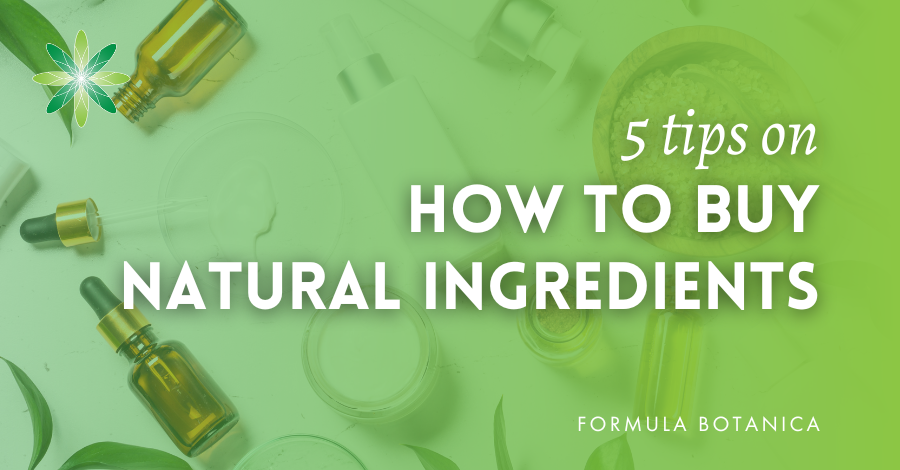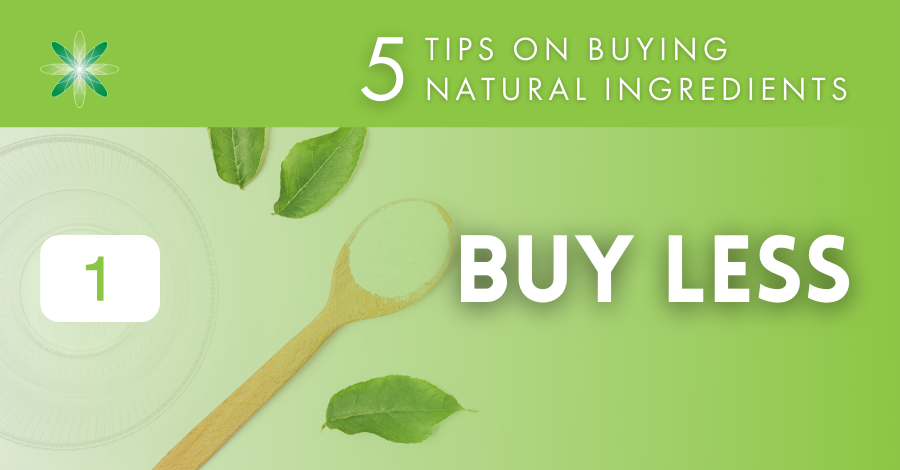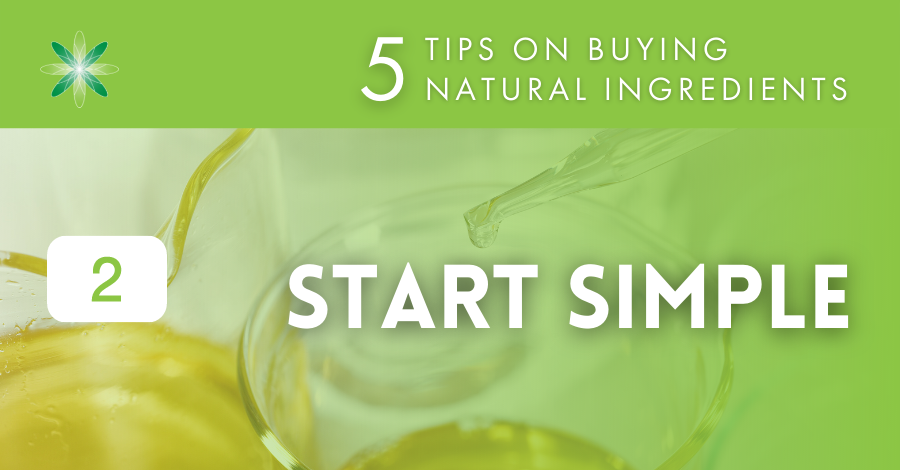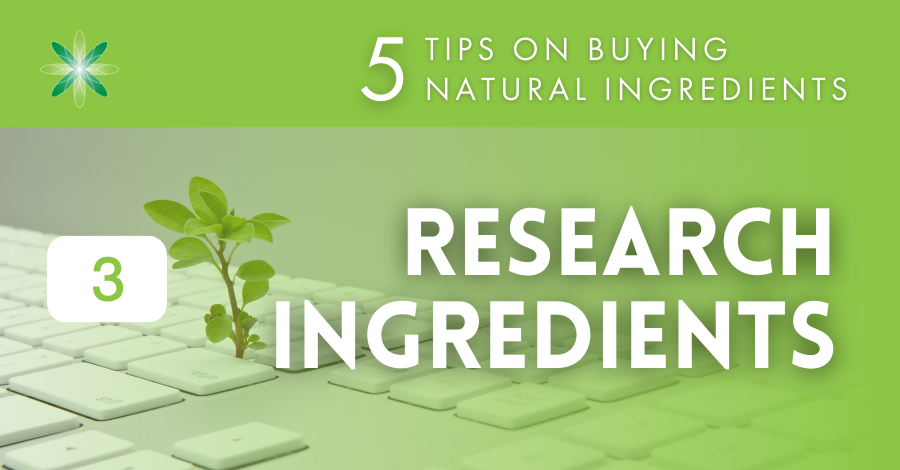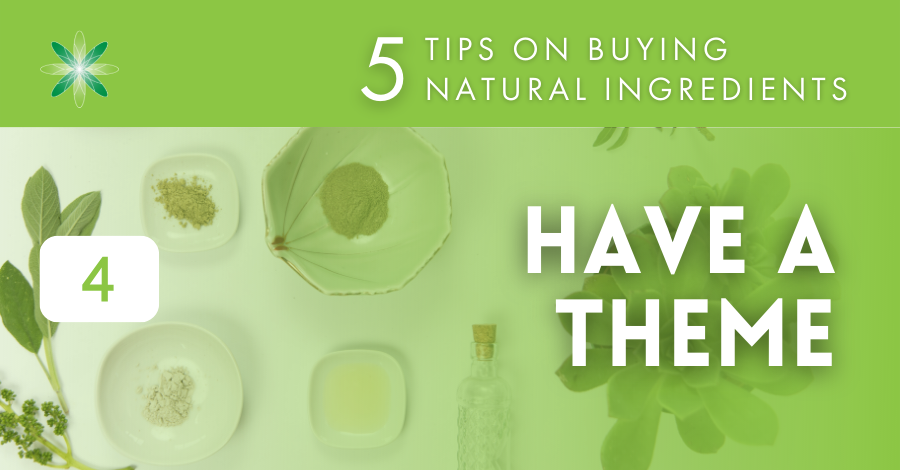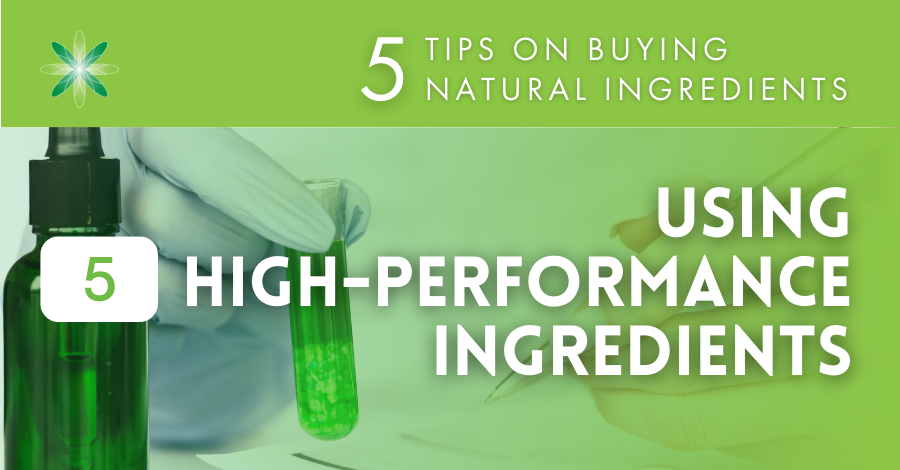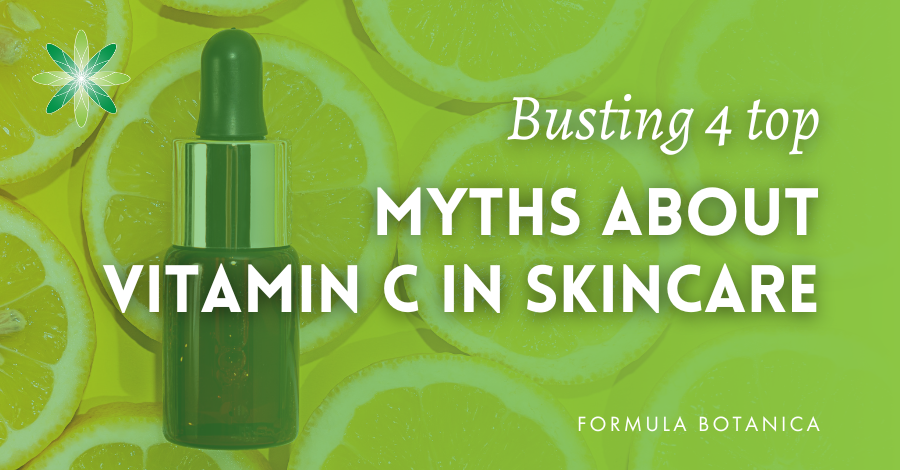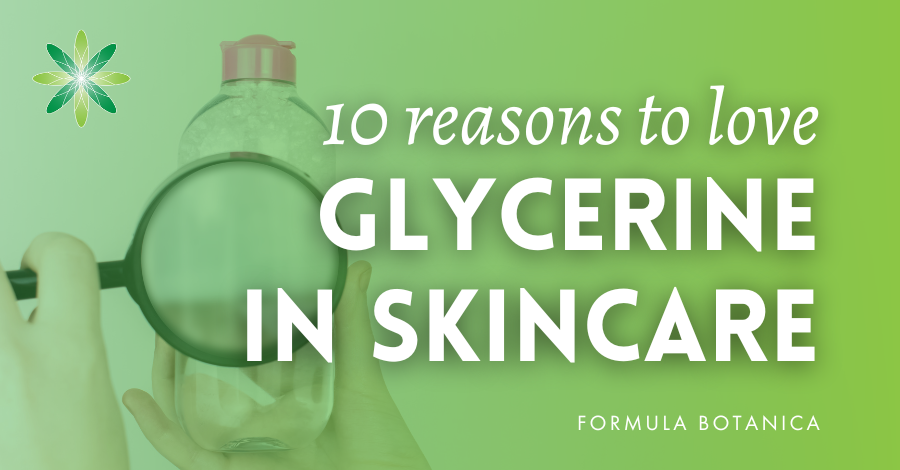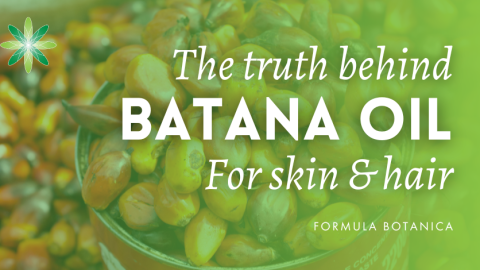In this article, we give you our top tips on how to buy natural cosmetic ingredients when you first start learning to formulate. This checklist is designed to help you avoid costly purchasing mistakes and overwhelm.
When we welcome new Formula Botanica students, we stress the need to start with the basics when learning about natural ingredients and making your first formulations. We like to use the phrase ‘Keep It Silly Simple’ which is our version of the KISS principle.
Effective, natural organic formulation draws on gorgeous botanical ingredients with their skin-beneficial compounds like phytosterols and antioxidants as well as their nourishing, hydrating and emollient properties. A passion for exploring botanical ingredients is what attracts us to learning natural formulation.
But, nature is wonderfully complex with many botanicals offering several different types of extracts (Aloe vera is one such example) and supplier websites opening a window into a world of natural cosmetic ingredients. It is tempting, especially as beginner formulator, to forget the KISS principle and go on a shopping spree.
However, your precious raw ingredients may go unused and expire before you have gained the formulation skills to make that face cream with peptides or understand which hyaluronic acid has the optimal molecular weight to use in a certain product.
Browse the many free formulations on this site and you will see the variety of organic skincare you can make with just a few ingredients in stock. Above all, remember our KISS principle.
How to buy natural cosmetic ingredients
1. Buy less
Faced with an array of botanical ingredients, in categories ranging from functional ingredients like botanical carrier oils and emulsifiers to high-performance ingredients like bakuchiol, ectoine and peptides, it is easy to over buy.
Instead, we recommend selecting a few, key ingredients to start with and buying them in manageable quantities. Remember that some ingredients may have short shelf lives or specific requirements for their storage. For example, some botanical oils may be less stable and more prone to oxidisation. Research issues like this before purchasing.
At Formula Botanica, we advocate sustainability in all aspects of natural formulation and home lab practice. By buying fewer types of ingredients and in lower amounts, you can reduce wastage. Once you know a test formulation works and you wish to upscale and produce more, go ahead and buy larger quantities of your ingredients if you wish. Check with your supplier about their minimum order quantities. Most of the suppliers we suggest at the end of our formulations on this site offer small amounts for the home formulator.
Buy a stash of multipurpose ingredients that can be used across many types of formulation. Our tutors compiled a list of their most useful botanical oils and waxes; ones to buy as foundation ingredients for your formulator’s store cupboard:
Top 10 botanical oils every formulator needs
6 vegan waxes for organic formulation
2. Start simple
Don’t over complicate your first natural formulations. Learn the foundation skills needed to make simple, yet successful formulations that you, your friends and family can enjoy. Even if you can use 10 or more botanical oils and tropical butters in a formulation, don’t.
Instead, keep your ingredients to a minimum – and your formulation less costly – while you get to grips with the techniques involved. Even a 5-ingredient simple, unscented balm takes skill as it can go grainy if you aren’t aware of how to tackle the cooling phase. Over time, as you gain confidence and experience, you can add high-performance, hero ingredients to those starter, framework formulations.
Here are some of our most popular beginner-level natural formulations to try:
10 best beauty products to make at home – a list of our popular, beginner-level formulations
How to formulate a simple face oil
How to make a neroli and tuberose whipped body butter
How to make an Amazonian lip balm
3. Research your ingredients
A large part of learning natural, organic formulation is ingredient research. Even before you melt those first butters, oils and waxes to make a simple balm, you need to get into the habit of doing desk research on your ingredients’ properties. And before the research comes the idea for your product. What is it you wish to make and why? What benefits do you want the product to impart on the user?
Only when you have defined your cosmetic product and its purpose can you begin to make a list of potential, ideal ingredients. Even as a beginner formulator, you should get in the habit of researching ingredients so that when you wish to use more complex ingredients, you have the experience to know what to look for and to ask your supplier about.
Emulsifiers, for example, are complex even if functional and common ingredients. Their properties and performance vary greatly to create different types of emulsions and to have different sensory experiences on the skin (for instance, different glide or slip on the skin).
Our tutors explain how they go about researching ingredients in our blog post: A day in the life of a natural formulator.
For more advice on how to research and source natural cosmetic ingredients, see these articles:
7 tips on sourcing sustainable ingredients
Organic formulators tell all: finding natural ingredients
How to research cosmetic ingredients for organic skincare
Podcast 79: the challenge of sourcing natural ingredients
Podcast 33: sourcing sustainable organic skincare ingredients
We also recommend understanding the INCI names of ingredients. INCI stands for International Nomenclature of Cosmetic Ingredients. See our Formulator’s guide to INCI which gives a comprehensive overview of how the register works and how it helps you as a natural formulator buy the right natural cosmetic ingredient for your needs.
4. Have a theme
If you are excited by the array of natural ingredients on offer, but confused about exactly which to buy, you need to narrow down your choices. A good way to do this is to have a specific theme to guide your formulation. Your target user is a good place to start thinking this through.
What stage in life are they, what are their preferences, what are their skincare or haircare issues, and what kind of other products would they buy? In marketing, this is called scoping out your ideal customer and it can involve creating an avatar for an imaginary person. We cover this in our article: How to sell homemade skincare.
But themes can be based on a variety of other factors including your desire to use botanical ingredients grown in your region, feature a star ingredient, create a minimalist line of products using just a handful of the same ingredients, your wish to make waterless and solid formulations and so on. Even the simplest, starter formulation can check the boxes of most of these ideas. Many Formula Botanica graduate brands have been launched from ideas that came to life with a single, simple, themed formulation created for one of their study exercises.
For some inspiration, see our guide:
5. Advice on high-performance ingredients
Finally, a word on buying more complex or high-performance natural ingredients. As we mentioned before, keep things simple when you are first learning to formulate. There is nothing more exciting than browsing supplier website pages of potent ingredients based on botanicals you may never have come across, but which offer amazing benefits. However, if you are at the start of your formulation career, we recommend not buying natural cosmetic ingredients that take more experience to work with.
Be aware too that adding a minuscule amount of many high-performance ingredients to a formula does not mean the cosmetic product will be the sum of the parts. The ingredients may not work in synergy, may not have the compatible properties required to create stable formulations and may be included in such minimal percentages as to be ineffective.
For example, some botanicals offer several different types of ingredient depending on which part of the plant they are extracted from. Without doing careful research you may buy the wrong extract. When working with more advanced ingredients, as a minimum you need to know, for instance, what compounds are within the extract and whether those compounds are water or oil soluble and the pH range in which they function safely and best.
Natural formulation is a creative process (as you think about your customer, a theme and so on), but you need to gain the kind of formulation skills, research capabilities and know-how Formula Botanica courses teach to understand how to work with a variety and complexity of natural ingredients to formulate effective, safe, stable cosmetic products.
Our last tip therefore, when you buy natural cosmetic ingredients, is to opt for more challenging-to-use ingredients in step with your experience as a natural formulator.
FREE TRAINING
Learn how to become an
Organic Skincare Formulator
FREE TRAINING
How to become an
Organic Skincare Entrepreneur
FREE TRAINING
How to become an
Organic Skincare Entrepreneur
Leave us a comment

Liz was Formula Botanica’s Content Coordinator between August 2020-2024. Liz worked as a professional blogger, journalist and site developer for many years and was also part of the Formula Botanica student community. Read more about the Formula Botanica Team.

